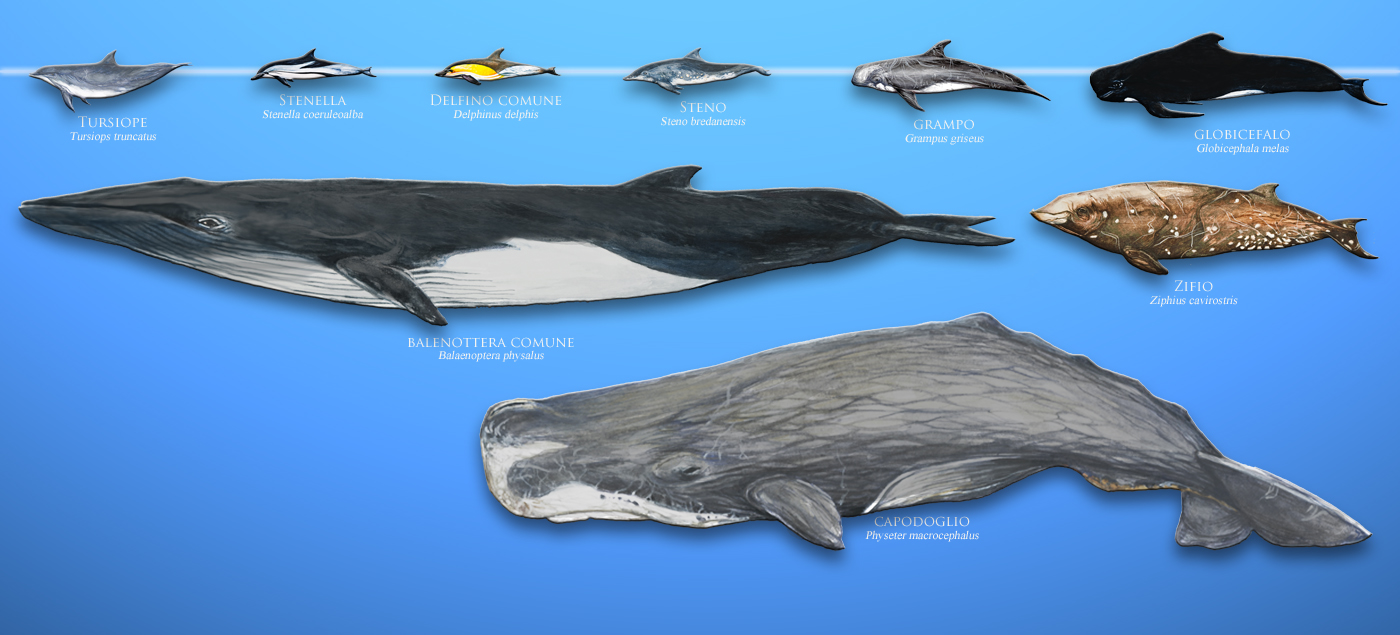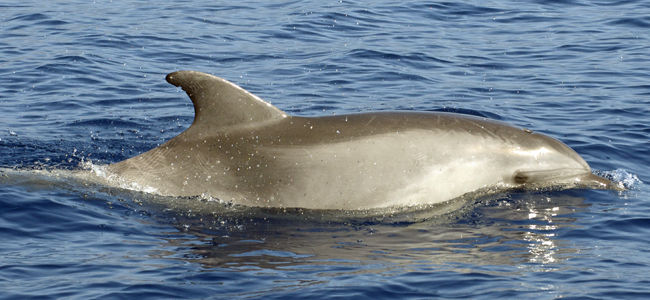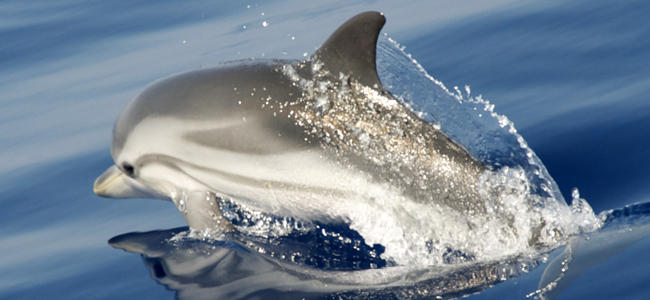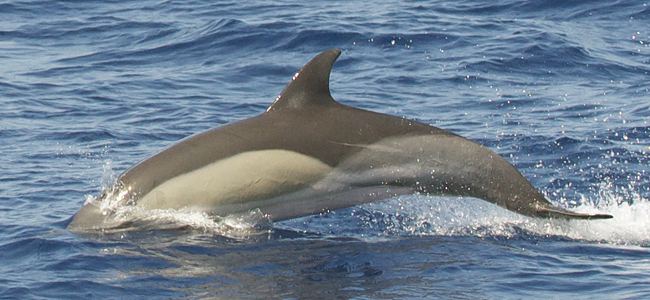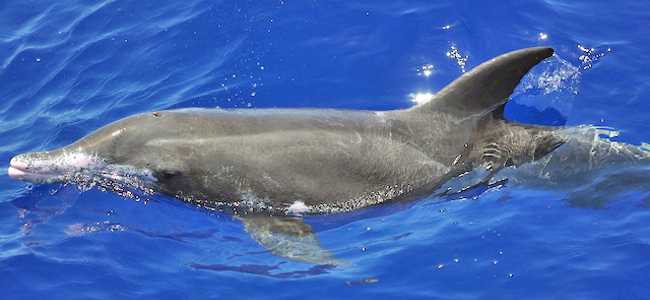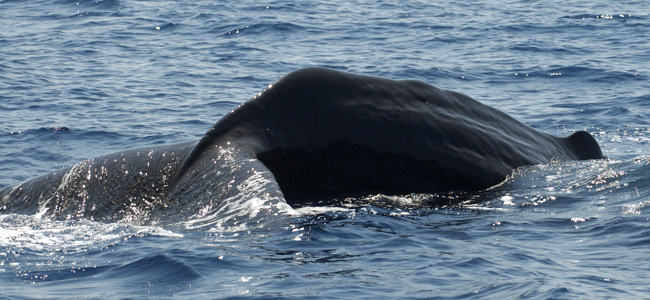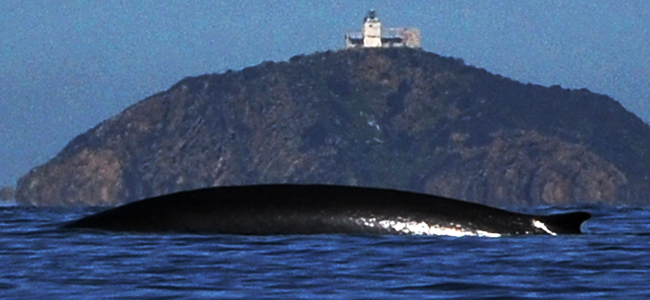By carefully observing the emergence profile of the Cetaceans we can establish with certainty the species they belong to. First of all it is necessary to evaluate the size of the animal, the shape, the size and the position of the dorsal fin. The presence of a prolonged snout or rostrum, as well as the characteristics of the breath, can be other important data. Finally, the number of individuals present in the group and the distance from the coast can also be used to identify the species.
Come back to the Cetaceans Guide
To recognize the typical Mediterranean species, use the photogallery below or follow this scheme.
Clicking on the name of the species you can see the biological sheet with description and image.
| UP TO 4 METERS LONG | |
| WITH ROSTRUM |
|
| Up to 10 miles from coast - grey colour | Bottlenose dolphin |
| Up to 10 miles from coast - very big group | Stripped dolphin |
| Up to 10 miles from coast - yellow color on the hips |
Common dolphin |
| Up to 10 miles from coast - rostrum very long - grey color |
Rough-tootheddolphin |
| WITHOUT ROSTRUM |
|
| Very visible scratches on the gray body | Rissos’s dolphin |
| LONG BETWEEN 4 TO 10 METERS | |
| WITH ROSTRUM |
|
| Small group – grey/green color | Cuvier's Beaked whale |
| WITHOUT ROSTRUM | |
| Very curved fin – round head – completely black body | Pilot whale |
| LENGHTS OVER 10 METERS | |
| ODONTOCETI |
|
| Shows the caudal fin – blow from the tip of the head | Sperm whale |
| MISTICETI | |
| Evident dorsal fin – high blow above the eyes | Finback whale |
